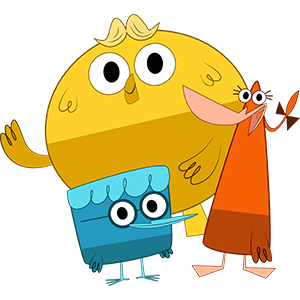2. Teach them to cooperate with others to develop social skills for kids
Cooperating with others to reach a shared goal is what adults usually do in everyday life and thus, cooperation is an important social skill for all of us to master. It is essential that parents teach kids about cooperation that kids learn how to cooperate, contribute, participate, and help out their team mates.
| >>> You might also interested in: How to Teach Productivity Skills to Your Kids? [Expert advice]
Children will need to cooperate with others at school, at home and in public places. At school, young children should work cooperatively with classmates on the playground as well as in the classroom. For them, cooperation level may be just simple like following the rules when playing hide-and-seeks, building a sand castle on the seashore, solving the puzzles together. Learning to cooperate with peers, kids start being social with others and that is a must in the development phase of a child.
Tips:
Parents should keep emphasizing the importance of teamwork to their children and how well a problem will be solved if all of us joins together and contributes our ideas and work. Also, parents may design family activities for the whole family to work together at home, such as drawing a painting or making cakes in which everyone is given a specific task. After that when the painting or the cake is ready, parents can emphasize the importance of cooperation that thanks to everybody, the final work has been made nicely.
3. Listen carefully
Listening is also a social skills kids need to enhance considering that kids sometimes fail to fully pay attention to what other people are saying; as a result, they may not absorb what people really imply. By carefully listening, children can communicate effectively and thus, improve his or her academic results as well as life experiences.
If your children can listen well and pay full attention to what is being said, they can absorb the knowledge well, take good notes and get ahead academically. In the future, your child, as a good listener, will grow up knowing how to listen to colleagues, senior staff, family members and friends. Listening skill seems even hard for us to sharpen in the age of Internet and smart phones because not quite few people can stop using their phones when they are talking to others; therefore, children really need the support from parents to master this skill.
Tips:
In order to improve listening skill for children, parents can make some rules such as “Please do not interrupt others when they are speaking”, “Please listen to me carefully while I’m talking to you”. In addition, parents can encourage children to listen to bed-time stories and check if they fully absorb the content; if they miss any details, you can help to provide them with the information they miss and ask them to continue listening to what you’re reading.
4. Act with Manners
In any forms of society, a well-mannered person is always welcomed and easily wins people’ hearts. If a kid is taught to be polite and act with good manners, he or she will be socially loveable, to be warmly welcomed to join any groups and respected by others. It is important to teach your kids about manners early on since their childhood so that they grow up being well-mannered adults in the future.
Teaching manners may not be easy for many parents because children shall let their manners go away sometimes. They can create big sound while they eat, speak impolitely to you when they get angry, for instance. Parents should be patient and supportive while teaching kids about manners.
Tips:
Parents should be well- mannered individuals at the first place so that children learn from good behaviors of their parents and mimic them perfectly. Do not forget to say “please”, “sorry” and “thank you” and have good table manners toward helping your child learn from your etiquettes. Furthermore, you can kindly remind your children about manners in case they may forget to act with manners and generously pay them compliments when you catch them being well- mannered.
5. Following Directions
In reality, we always have to follow directions from others to do something; it can be simple as guidance in a cook book of how to make a cake to something more complicated such as design a website based on customer requests. Kids also need to follow directions in many situations, at home and at school.
Teaching kids to well follow instruction can help them avoid many problems, gain good academic results and work more effectively in groups. Whether parents instruct your children to wash their hands or do laundry, it is crucial for kids to be able to take direction—and follow instructions. Knowing how to follow directions, they shall NOT have to redo their homework assignments, get in trouble for misbehavior or have conflict with their teammates.
Tips to develop social skills for kids:
Parents should learn how to give direction well so that children can follow your directions correctly. You should give simple commands, not give a young child too many directions at once. Instead of asking them to do all 3 tasks, “Please pick up your toys, put the remote control back, and do your homework,” parents can before give the command one by one after one task is done by the kids. Plus, you should give your children nice compliments when they have done a good job of following directions by saying things like, “Thank you for cleaning your room as I asked you to.” And in case your kids may find it hard to follow directions, you can patiently explain to them why they should do that and show them some small steps to do the task little by little.
In conclusion, Skidos are glad to point out 5 essential social skills for kids need including sharing, cooperating, listening, having manners and following directions so that parents can teach kids when their kids are still young. Knowing that social skills can be taught, Skidos would like to emphasize the importance of those social skills to teach children and offer several useful tips for parents to take while trying to teach kids to master those skills. In this 21st century, it shall never be too early to start educating your kids a few but important social skills and get them sharpen their skills every day. Parents should be patient and supportive while teaching kids all these skills because it really takes time for them to absorb knowledge and master skills.



